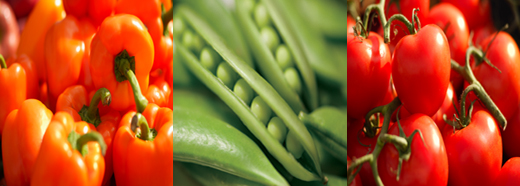Can cancer treatment have an effect on my appetite?
Yes, some treatments and medications may cause changes in your appetite or desire for certain foods. This is a time to think of food as an important part of your treatment. A Registered Dietitian can help you maintain a healthy and balanced diet though treatment by recommending foods or nutritional supplements that will help you maintain your weight and prevent malnutrition.
Kaiser Permanente: Nausea during Chemotherapy
American Cancer Society: Treatment of your nausea and vomiting
Can cancer treatment alter my taste or cause sores in the mouth and throat?
Yes, cancer treatments can change the way foods taste to you. You may notice changes in the way sweet or bitter foods taste. Also, the smell of your favorite foods may not appeal to you as much as in the past. Chemotherapy can also make areas in your mouth dry and irritated. If you develop sores in your mouth and they affect your ability to eat or drink, be sure you tell your doctor right away and seek treatment.
Are these changes permanent?
Not usually. These changes are typically (but not always) temporary and your appetite and taste buds return to normal following treatment. Maintaining your weight, good oral hygiene, and a nutritionally balanced diet throughout treatment can ensure you the best outcomes.
Does eating sugar cause cancer?
No, eating sugar does not cause cancer. There is conflicting information about the role of sugar and cancer. To be specific, sugar is a type of fuel that comes from eating carbohydrates. This includes simple sugar added to sweets, as well as sugar (glucose) that is broken down from the digestion of breads, grains, fruit, milk, and vegetables. Glucose is a type of sugar that fuels our brains and muscle cells and a vital source of energy. Some people have a tendency to have high circulating insulin levels. This is more common when a person is overweight and does not process sugar and carbohydrates well. It is thought that the combined effects of overweight, insulin resistance and high sugar intake can lead to cancer development.
If I have had cancer, should I stop eating all sugar now?
It is not necessary to avoid all sugar. However, it is a good practice to eat mostly fruit, vegetables, whole grains, and lean meat and dairy products in small portions. Enjoy an occasional cookie or sweet treat but try to limit the amount and frequency of foods that have little nutritional value. This is good for everyone, at any age.
What about preservatives and additives in foods?
Some preservatives are essential to keeping food stable for shipping and selling around the world. The most common preservative is salt. Some processed foods, however, have excessive amounts of preservatives and additives including colors and food dyes to enhance the appearance of the food without a benefit in nutrition. If the bulk of your diet is fresh foods, minimally processed, this is the healthiest goal. Avoid eating large amounts of highly processed foods in unnatural appearing colors.
Are there any known natural medicines, vitamins, minerals, herbs that are effective at treating cancer?
According to the Natural Medicine Comprehensive Database, there are 28 vitamins, herbs and natural products that are possibly effective at treating cancer. In addition to learning about the products, you can access their safety information and potential interactions with other medications. The database can be found on the following link:
What is the connection between antioxidants and cancer?
Antioxidants are found naturally in fruits and vegetables, and help prevent oxidative damage. Oxidative damage may contribute towards the development of cancer. For cancer prevention, and for secondary cancer prevention in cancer survivors, it is recommended to eat more fruits and vegetables. The recommendations are 9 to 13 servings per day. One serving is 1/2 cup raw or cooked, 1 cup raw leafy greens, watermelon or berries, and 6 ounces of 100% juice.
The research studies do not show a reduced cancer incidence from antioxidants supplements. Therefore, eating the food is advised.
Is it safe to take antioxidant supplements during cancer treatment? How about eating antioxidant rich foods?
Most oncologists advise against antioxidant supplements that are more than 100% of the Recommended Daily Allowance during chemotherapy and radiation because they may prevent the treatment from working properly by not allowing the cancer cells to get destroyed. It is safe to eat foods rich in antioxidants during treatment, although excessive volumes or juicing is not advised.
What is the ORAC value of foods and how much is recommended daily?
ORAC (Oxygen Radical Absorbance Capacity) value, is the measurement of the antioxidant content in foods, beverages, herbs and spices. The ORAC value, or ORAC unit, or ORAC “score” was developed by scientists at the National Institutes of Health. Although the exact relationship between the ORAC value of a food and its health benefit hasn’t been established, it is thought that foods higher on the ORAC scale will more effectively destroy free radicals. According to the free-radical theory of aging, this will slow the oxidative processes and free-radical damage that can contribute to age-related degeneration and disease such as cancer.
It is recommended to eat a variety of foods high in ORAC value, opposed to just one type. Researchers suggest a minimum of 12,000 units daily. Variety is important to assure a variety of antioxidants from your food sources which scientists suggest offer the most benefit. A few examples of the ORAC value of foods are as follows. All foods measured in 100 gram samples (or 3.5 ounces).
Black raspberries 19,220
Raw, wild blueberries 9,621
Boiled artichoke 9,416
Dried plums (prunes) 8,059
Blackberries 5,905
Red Delicious Apple 4,275


